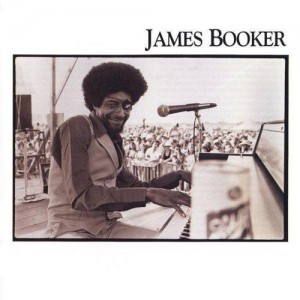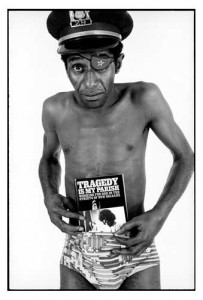Local filmmaker Lily Keber is set to unveil her James Booker documentary at the South By Southwest annual conference’s “24 Beats Per Second” series March 14-15. OffBeat had the opportunity to preview the film and writer Alex Jennings took some time to sit down with Keber to find out what the world might learn from “New Orleans’ Black Liberace.” Here’s what he found out…
When I ask Lily Keber, director of the new documentary, Bayou Maharajah: The Tragic Genius of James Booker, to sum up her subject in one sentence, she quotes Dr. John, saying “‘He was the best black, gay, one-eyed junkie piano genius New Orleans has ever produced,’” but it’s clear that these words come so easily to her because she believes them to be true. After three years of hard work, she has shepherded her film project to completion, and on March 14, she will unveil it at Austin’s South By Southwest festival as part of their “24 Beats Per Second” program. The film will screen March 14 at 4 p.m. at the Topfer Theatre at ZACH (1510 Toomey Rd – Austin, TX), then again on March 15 at 7pm at the Alamo Ritz 2.
James Carroll Booker III is a thorny subject. The man’s personality was as complex as his approach to the piano—He could and did play authoritatively in any style, never missing a chance to strut his stuff using wigs, capes, candelabras, and his trademark starred eye patches. In Keber’s view, a by-the-numbers retelling of Booker’s life story leading up to his death at Charity Hospital in 1983 would have missed the point of the pianist’s personality and his legacy. Instead, she used stock footage of New Orleans taken throughout Booker’s life and interviews with the subject as well as with New Orleans musicians including Irma Thomas, Dr. John, Harry Connick, Jr, and Allen Toussaint, to paint a picture of the man from multiple perspectives. Doing so allowed Keber to include details that might have been missed even by Booker’s small but vocal fandom. For instance, it seems that Booker wore his starred eye patches as a dig at Ringo Starr. Booker claimed to have lost his eye to Starr in a fight, but a more believable reason for his animosity surfaces during the film: Booker believed the Beatle had misrepresented and disrespected him and his work in print.
Keber herself is not native to New Orleans, but she is the kind of transplant that seems to take to the city both immediately and permanently. Born in North Carolina, she attended high school and college in Georgia. Her only formal training as a filmmaker consisted of a stint at The Workshops in Maine. She developed her filmmaking chops working at Appalshop, a media collective in Whitesburg, Kentucky. When she moved to New Orleans, she founded a collective of her own, New Orleans Video Voices, an organization dedicated to increasing media literacy and self-representation in the Gulf South. Her initiative and hands-on learning style combined with her conviction that truth is both stranger and more interesting than fiction have equipped her well to tell the story of one of New Orleans’s lesser-known musical heroes.
Keber first discovered Booker’s music a little over three years ago, while tending bar at Vaughan’s Lounge in the Bywater. She developed an immediate fascination after hearing his effortless command of the keyboard and his voice, both rich and reedy, full of longing, pain, and a certain sort of bruised joy. Asking around about him, she encountered bizarre story after bizarre story. “And I began to notice,” she says, “that the more bizarre a James Booker story was, the more likely it was to be true.”
Booker and those who knew him told numerous anecdotes about the events of his life. For instance, to this day, no one knows exactly how he lost his left eye. Accounts—including Booker’s own—vary. But, instead of despairing, Keber decided to let the mystery become the story. “I don’t want to be seen as someone who’s interpreting Booker,” she says, her voice brimming with conviction. “I feel my role is more one of a curator. If I can just lay it out there on the table, it’s up to the audience to make of it what they will.”
For those of us who arrived in New Orleans too late to witness Booker’s infamous tenure at the Maple Leaf Bar, the film is almost an act of necromancy, calling forth the spirit of its subject not just in words and images, but in its very structure. Keber organized the film the way Booker organized his sets—in a series of peaks and valleys leading to a final crescendo and a cessation that leaves its audience with a bittersweet sense of loss.
“Booker personifies New Orleans in a lot of ways,” says Keber. “He’s funky, he does things his own way—even to his own detriment. If New Orleans would get its act together, sure we’d have industry, and maybe even a vibrant economy, but who would want to live here? Booker is the same way. You could just look at him and listen to him and know that there is no one else on Earth who has ever, or will ever, be like him. That he existed at all is a comfort to me.”
More Info: www.BayouMaharajah.com
SXSW Screenings: http://schedule.sxsw.com/2013/events/event_FS13881
Facebook: https://www.facebook.com/bayoumaharajah







